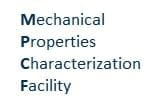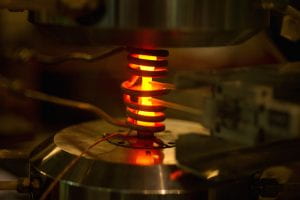

The MPCF is an interdisciplinary Institute for Matter and Systems facility that supports education and research programs related to process-structure-property relations in structural materials. Its principal activities are directed towards the measurement and modeling of the mechanical properties of engineering materials, primarily related to deformation, fatigue and fracture. The MPCF has expertise to conduct various mechanical test experiments on structural materials in different environments and at temperatures from sub-zero to 1650°C.
For GT students, faculty, and affiliates: access to the MPCF is managed through the campus-wide Shared User Management System (SUMS). To become a user of SUMS, please go here. To become a member of the MPCF equipment group, please go here and search for MPCF.
For any further questions, please contact Weston Straka or Jonathan Jean-Louis.
Mission
- The mission of the MPCF is to:
-
- Conduct nationally leading research with emphasis on structural applications;
- Significantly enhance interdisciplinary graduate education; and
- Disseminate valuable information through research, publication and presentation, thereby serving as a technical resource for industry and government.
[expand title=”Vision“]
The Mechanical Properties Characterization Facility (MPCF) shall be known as a world-class university laboratory investigating deformation, fracture and fatigue research of various structural materials, with a unique combination of experiments and modeling through the effective union of the disciplines of experimental mechanics, solid mechanics, and materials science and engineering.[/expand]
[expand title =”Research Thrusts“]
MPCF faculty are involved in a wide range of research activities. Principal research thrusts include:
- Fatigue and fracture studies of structural materials in extreme environments including high temperature applications (e.g., jet engines and power plants) and medical devices.
- Development of fatigue, fracture and life prediction methodologies for application to components in the aerospace, power systems, microelectronics, ground vehicles, and medical devices.
- Development of constitutive equations for deformation and damage of structural metals, advanced alloys, metal foams, and composite materials, employing multiscale modeling at the interface of materials science and engineering, mechanical engineering, and engineering mechanics.
- Experimental strategies to support Integrated Computational Materials Engineering (ICME) and the Materials Genome Initiative (MGI).
Research programs, supported by government and industry, are carried out under the supervision of faculty members drawn from various disciplines and Schools. Over $3M is expended by MPCF faculty in externally sponsored research each year. These projects serve as the basis for theses and dissertations of students seeking M.S. and Ph.D. degrees. In addition to faculty and post-doctoral students, a research engineer and an administrative assistant support MPCF activities.[/expand]
